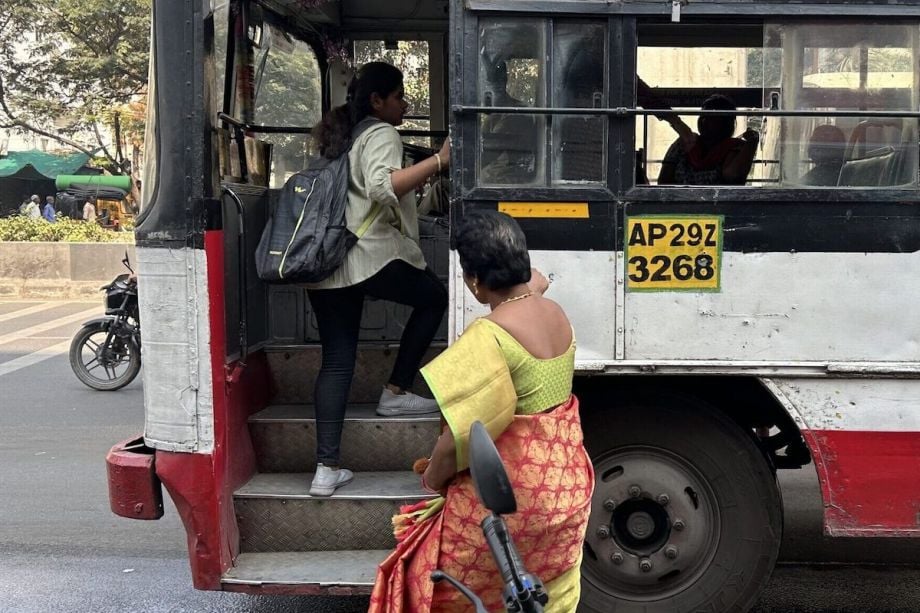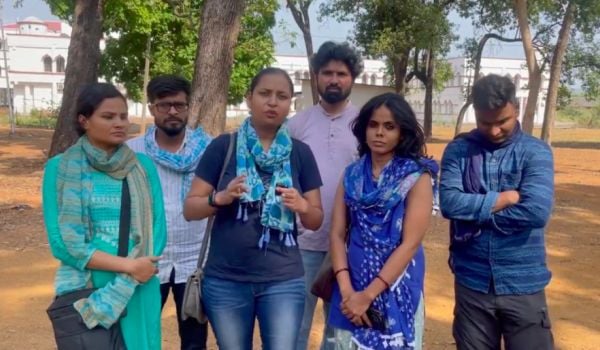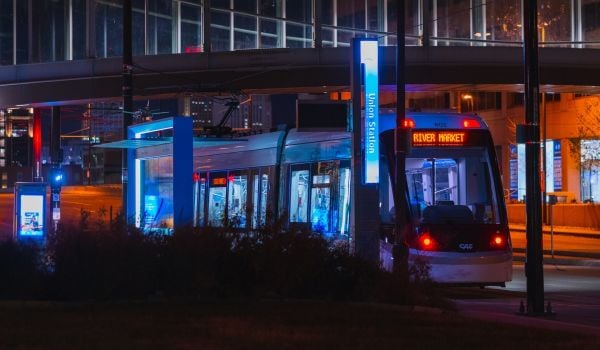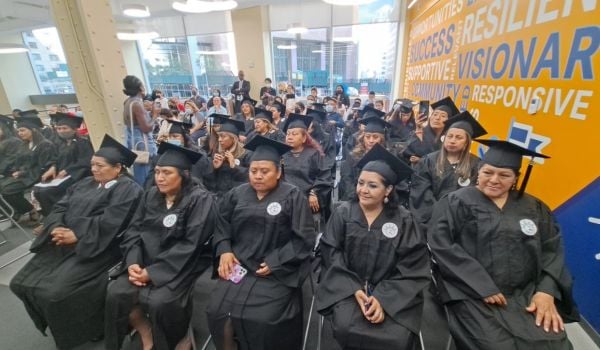This story was originally published by Reasons to be Cheerful.
C. Parvati was born and raised in Bangalore, but she never had the opportunity to visit the temples and tourist sites because she could not afford to spend money on such recreational activities. “Now, I am able to take my children and show them these places even within my budget when school has holidays,” says Parvati.
What changed? She’s been able to save money since the Karnataka state government made public transportation free for women in June.
Karnataka is one of several Indian states that have recently implemented a free bus pass for women. The initiative is called Shakti, which in Hindi means “strength.” In 2019, Delhi was the first place in the country to provide women with complimentary tickets printed on pink paper, and earlier this year, the state administration reported that more than one billion have been used thus far. Other states that have launched similar programs include Tamil Nadu, Punjab and Telangana.
The purpose of such policies is to bring more women into the workforce by lowering the cost and simplifying the process of working and traveling. According to the World Bank, India has one of the lowest rates of female labor participation in the world, with less than 25 percent of women over the age of 15 employed as of 2022, a decrease from 27 percent in 2012. In India, men frequently restrict the financial options available to women. And although these same men may object to their wives working outside the home, free travel gives women a choice that they did not have previously. Though women are free to work, if their commute is too expensive or unpredictable, they frequently choose not to. The governments that have put the program into place say that it has been successful and they intend to extend it.
Often, marginalized women are those who have to work every day to feed their families, and are pressed for time with cooking, household chores and helping with elderly family members. Taking the bus helps them to save time and be efficient in their work. Without the bus, these women would walk on average three to five kilometers a day, which can cut down their annual earnings by up to a quarter.
“The convenience of the free bus saves them time and helps them in earning a double income,” says Tara Krishnaswamy, the co-founder of the non-governmental organization Political Shakti. Apart from saving money on their travel, the women are also able to take up extra work in the time they save, allowing them to earn more. According to Krishnaswamy, most of the marginalized women across the country depend on rations, a subsidized food program providing mostly rice and few necessities. The money the free bus rides save these women helps them buy nutritious food — like fruits, eggs or milk for their children — that is otherwise out of their reach.
Vinay Sreenivasa, a member of the Bangalore Bus Commuters’ Forum, says the group has been pushing for the free bus ride program for two years. “We believe that employment and educational opportunities for women are hurt because of the unavailability of affordable transport, doing this will also put more women in the public life in the economy,” says Sreenivasa.
The number of people utilizing public transport has increased, as has the revenue of all four road transport corporations (RTCs) in Karnataka, thanks to the Shakti project. Ridership and the transport department’s revenue both increased following the introduction of this system. In the six months after the program’s launch, 6.2 million women in Karnataka — which includes the city of Bangalore — have taken advantage of it and saved a significant sum of money. By allowing women to achieve goals that were previously unattainable, the free bus fares boost the economy, contributing to spending that helps local businesses and even the tax system.
The initiatives in Telangana and Karnataka, which encourage women to apply for smart cards, could serve as a way to gather important data and could eventually develop into a national common mobility card. But since getting a smart card requires paperwork, this excludes marginalized women who may not be documented. Another state, Tamil Nadu, has eliminated this obstacle. Its plan involves no paperwork, and is straightforward and simple to apply, making it accessible to all women.
P. Yashoda, who works with the domestic workers union in Bangalore, feels that though the program there is helping them save on money and time, it has its limitations. “I have faced many situations when the conductor is rude to me and my male co-passengers question me about why this scheme is applicable only to women, when they’re also paying taxes,” says Yashoda. “This sort of disrespect and behavior is very unfortunate.” At the same time the program is drawing criticism from taxi and auto drivers, who have gone on strike in some cases over their fear of losing passengers.
Freedom of mobility is a fundamental right in India, and this initiative enables women to exercise that right. “The biggest and most important takeaway from this scheme for women is dignity, which earlier they didn’t have and were forced to ask their husbands for money to travel by bus. This initiative is helping them build their self-confidence and give them the dignity that they deserve,” says Krishnaswamy. Several sectors of society, including women’s advocacy organizations, transportation specialists and regular people, have applauded the initiative. It represents a forward-thinking move toward the creation of a more equal and inclusive society where women can use public services without restriction.
This initiative is giving women the economic empowerment to do things for themselves that they always wanted to do but never did, as they always gave priority to others’ needs over their own. “Earlier when I had to travel to my village Narsampeta, in Telangana, it cost me Rs.1400 [about $17 US] per trip,” says Pallekonda Saroja, a domestic worker from Hyderabad. “Now I can buy something for myself by saving this amount.” Saroja’s daughter-in-law, Usha Rani, who works as a nurse in Hyderabad, commutes by bus daily, so she is happy about the introduction of this initiative in Hyderabad. “I can put aside the money I save for my kid’s higher education,” says a smiling Rani.
In addition to its material advantages, the Shakti plan has had a significant social influence. It opposes conventional gender norms and advances gender equality as well as women’s engagement in public life. Women’s growing visibility on public transportation is an important step towards normalizing women’s presence in all sectors of society. Many women say that the program gives them a sense of security when they travel. The program’s goal of increasing the number of women on buses fosters a safe atmosphere that lowers the risk of harassment. And in a patriarchal society like India, it’s giving women the financial ability to dream for their children’s bright future and to actually do something for their own benefit.
“I took the bus along with my friend today to run some errands. I was so happy, as this saved me Rs.100 and this means a lot to me,” says Uma Maheshwari, a housewife from Hyderabad, Telangana. “Now I can save more and buy something for my home.”
Kavitha is an independent writer based in Hyderabad, India. She is a civil engineer with a masters degree in environmental science. She writes about the environment, science, health, social issues, food, culture and travel.

















Add to the Discussion
Next City sustaining members can comment on our stories. Keep the discussion going! Join our community of engaged members by donating today.
Already a sustaining member? Login here.